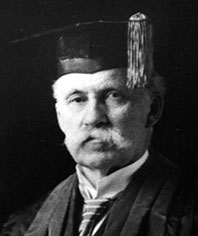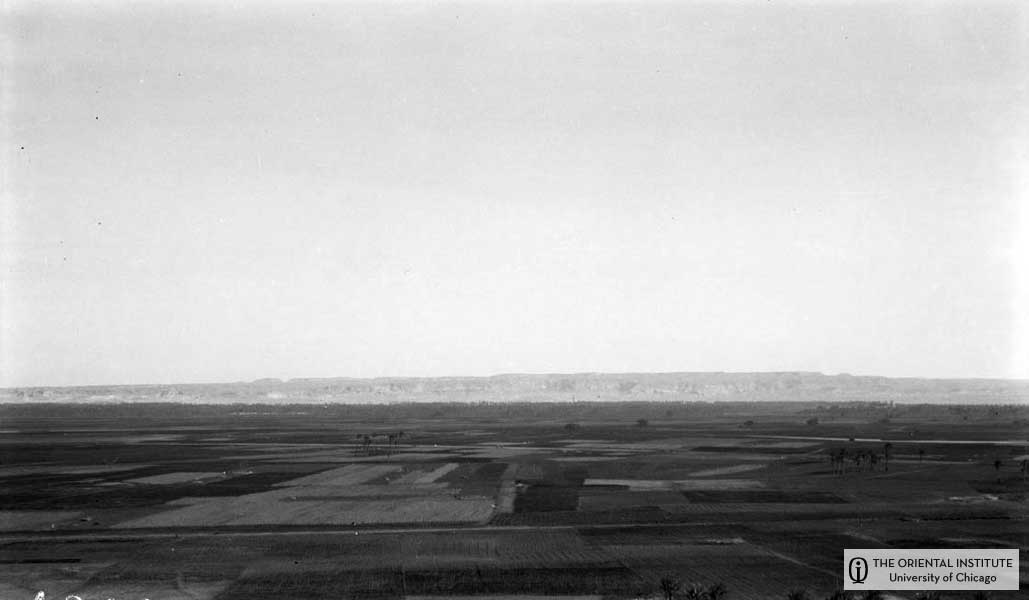Villa Mandofia, Cairo
January 14, 1920
My dear Frances-
I have a very welcome series of letters from you to acknowledge: December 1 (delayed and received after No. 1, which was dated later), December 8 (No. 2), 8th (No. 3), 10th (No. 3) 11th (probably No. 4, but not numbered) and December 15th (No. 5); besides a little letter from Jamie written December 14th and one from Astrid of the same date. They are all read and reread and valued as only you will learn when you have been separated as long as I have been, from your loved ones.
I am distressed to know that you have had any financial anxiety. You know you can draw a check on my own account when you need money, if you will let me know at once. Let me say now that you must buy the coal for next winter as soon as the bins will take it and the company is ready to deliver it. Call up Mr. Dinsmore early in April and put in the order for 30 tons, and pay for it when the bill comes in, from my bank account if you have not the funds in your own.
Before I forget it let me thank you for the little French you have so thoughtfully sent me. It seems to be very practical and I shall take it with me to Asia against the day when we enter French territory in Syria. But my chief interest in your letter was your account of your interviews with the president. I certainly appreciate all you have done, and I suppose what he learned from you had the more weight as it was not intended for his ears. It is most encouraging loyalty which he is showing, and I feel my own loyalty to the institution I have served so long immensely warmed and stimulated by it. It is not the least an ungrateful reflection to wonder, as I look back on the recent years, whether I have climbed into the president’s bandwagon, or he has climbed into mine. There is evidently a certain measure of the latter alternative. I am very grateful to you for the good work you have done; I am so glad also that the president gave Luckenbill something to spend in Paris.

President Harry Pratt Judson (image courtesy of the University of Chicago)
I will not enter into the Allen-Pittman difficulty. I am too busy. It will have to straighten itself out. But please don’t put all the blame on George. There is blame on both sides, and it must not be forgotten that Allen is faithfulness personified.
Please extend my sympathy to Uncle Charles Cleveland and Edith; but do it by telephone to Evanston and do not spend your strength in writing. I am too deeply involved here even to sit down and write them a note. I appreciate your kindly admonitions to take it easily - to take a nap every afternoon, etc.; but I am busier and more pushed than I am at home, and it is no easy matter to find the time for writing you as I would like to do. The days never seemed so short as they do here, and in spite of the slow moving months when I think of my home, on the other hand when I contemplate the work the years seem short indeed.
Last Thursday, a week ago tomorrow, Bull and I, in the company of Firth, one of the new men on the Antiquities Service, went out by automobile to Sakkara. Think of taking a car almost out to the pyramids, and then turning south, driving on top of the canal dyke, the “gisr” as the natives call it! It was sometimes ticklish driving, and we seemed likely to slip off into the canal in several places, but we got through all right. We had our three field beds, besides hand luggage, and with Mohammed perched on top of the latter, and holding a heavy bag in his lap, we drew up at last under the shadow of the Sakkara pyramids and walked up to Quibell’s house, which he now no longer occupies, having been succeeded in this Sakkara post by Firth.
We spent a wonderful day among the tombs and pyramids, and as I looked about, I wondered where my faculties of observation had been slumbering in all my former visits, for I was now seeing so much more than I had ever seen before. If my health and strength are spared I shall be able to improve my History of Egypt immensely and also to write a book on the Origins and Early History of Civilization which will carry things far beyond anything now available. The Hale lectures which you have been reading will suggest what may be done, and although they are only a hurried breaking of the ground, I am glad I did them; for they put into consecutive order and gave sequence to a lot of disconnected masses of material facts which my mind had never fitted together. I am glad to hear you say in your last letter that you do not regret my calling or the sacrifices which it entails. I could have let this great moment following the close of the war pass by without a quiver, stayed at home and accomplished a lot of work; but I would have gone to seed and settled down into the inertia of the latter middle years from which I never would have aroused myself. There was at least one more good strong kick left inside this old and dyspeptia-ridden machine and I had to let it out. If the Department of Oriental Languages had not risen to the situation created by the end of the war, then there was absolutely no hope for its future. Etc., etc., etc., etc., !
But to return to Sakkara, Mohammed unpacked our lunch, or the provisions we had brought to supply one and spread it out on the table in Quibell’s old dining room, where we fed royally on an omelet and much tinned stuff, mostly from the west side of the Atlantic, while we looked out on a magnificent view across the green valley to the great cliffs of the eastern desert on the other side. In the evening we dined in the same way, watching the waning light as the shadows drew far across the green starlit splendor of the desert sky. Mohammed spread out our bedding on the bedsteads still remaining from Quibell’s outfit, but sleep was not very comfortable without a proper mattress.
 View looking east from house of Mr. J. E. Quibell. (N. 4211, P. 7813)
View looking east from house of Mr. J. E. Quibell. (N. 4211, P. 7813)
The next day Quibell came over with some friends from his home just opposite Sakkara at Helwan, and about 11:30 we left them and moved north along the margin of the desert to the pyramids of Abusir, where I had never seen the excavations of Borchardt. Here is the pyramid of Sahure, which enabled Borchardt to restore the beautiful palm colonnades of the Fifth Dynasty, the oldest colonnades in the world. It was this pyramid which is represented in the model outside my office door in the North Museum hall in Haskell. Here two sand-cars, dog-carts with broad-tired wheels came out to meet us from Bedrashen and went on northward with us toward Gizeh. We visited the wrecked Sun-temple of the Fifth Dynasty not far north of Abusir, also excavated by Borchardt, and likewise still unknown to me except from the publication. It was very impressive with its magnificent alabaster altar. Toward dusk we climbed the rim of the plateau and descended into the vast excavation in the rock made for an unknown king as the substructure of his pyramid near Zaweit el-Aryan, a tremendous place, paved with colossal blocks of granite almost too tall to look over. As we climbed out of this gigantic cutting in the rock of the plateau, the sun disappeared and all the eastern cliffs for miles south of Cairo were transformed into plastic glory of pink and gold which vanished as we looked and merged into a massive barrier of somber rocky bulwarks, behind which all at once a glittering host drew forth and marched in splendor up the eastern sky, while we stood alone in the solitude of the western desert. An hour later we were rattling along in a modern electric trolley speeding toward Cairo.
For the full story of my exciting trip you should come to the special exhibit “Pioneers to the Past: American Archaeologists in the Middle East, 1919-1920,” at the Oriental Institute!
1155 East 58th Street Chicago, IL 60637
Hours:
- Tuesday 10:00 am to 6:00 pm
- Wednesday 10:00 am to 8:30 pm
- Thursday 10:00 am to 6:00 pm
- Friday 10:00 am to 6:00 pm
- Saturday 10:00 am to 6:00 pm
- Sunday noon to 6:00 pm
- Closed Mondays
http://oi.uchicago.edu/museum/special/pioneer/
And visit me on facebook at: http://www.facebook.com/profile.php?id=3318774#/profile.php?v=info&ref=profile&id=100000555713577